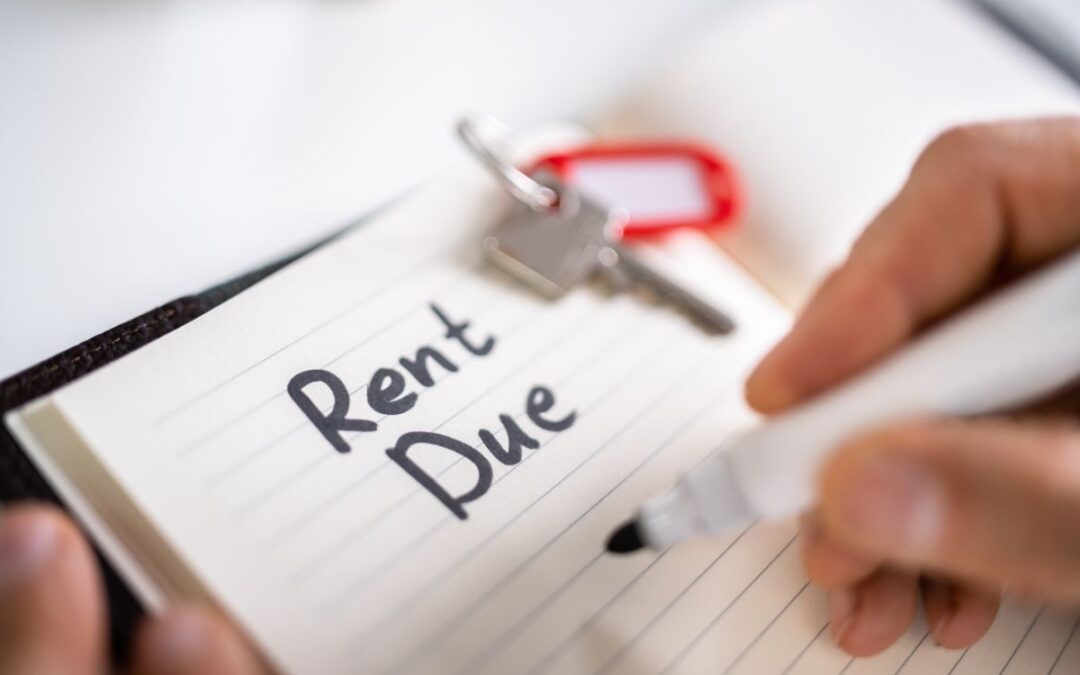As a landlord in a residential tenancy agreement, there is an expectation that your tenant will pay the agreed rent on time and in full.
Tenants are legally responsible for the payment of rent and must continue to do so until the tenancy ends. Any failure to pay rent outside the agreed terms is a breach of the tenancy agreement and places the tenant in arrears.
What should I do if my tenant is in arrears?
Arrears refers to a debt that is still owed to you by your tenant beyond the agreed payment date. There are a number of actions a landlord can take if a tenant has missed a payment, is consistently late in their payments, or has stopped paying rent altogether.
If your tenant is only one or two days in arrears, it is recommended that you or the agent contact the tenant with a reminder of the overdue payment through a letter, email or telephone call.
If your tenant if consistently late in their payments, it may be useful to adjust the method of payment to a more reliable form for your tenant, such as a recurring bank transfer.
If your tenant is experiencing a financial hardship, a repayment plan can be arranged to have the arrears repaid over an agreed period of time.
Can I terminate the tenancy agreement?
If a tenant has breached their residential agreement, a landlord is able to serve a non-payment termination notice under section 88 of the Residential Tenancies Act 2010 (NSW).
A termination notice can be served to your tenant if they have failed to pay their rent, water usage charges or utility charges for 14 days or more. Although a termination notice can be served at any time, the tenant must be at least 14 days behind with their rent before the notice is served.
According to NSW Fair Trading, a termination notice must:
- be in writing
- signed and dated by the party giving the notice
- include the address of the rented property
- state the day the tenancy agreement is to be terminated (and by which the tenant will need to vacate the premises) and
- include the reasons for the termination (if applicable).
What if my tenant manages to repay their arrears?
If your tenant manages to pay their outstanding amount, or has agreed to a repayment plan, there is a general guarantee that the tenancy will continue – even after a termination notice has been served.
This guarantee ensures that a one-off late payment will not disrupt the tenancy agreement or the tenant’s ability to rent in the future. The only exception to this guarantee is if the tenant has frequently paid their rent late.
What if my tenant refuses to pay their rent?
If a tenant refuses to pay their rent, the landlord will need to apply to the NSW Civil and Administrative Tribunal (NCAT) for a termination and possession order.
If a landlord applies to NCAT for a termination and possession order, a notice will be sent to all parties with the date, time and venue of the hearing. Before the hearing takes place, NCAT will encourage parties to resolve the repayment of outstanding arrears through conciliation.
At the hearing, you will need to provide evidence to support your case. Supporting material may include your lease, correspondence with your tenant, rent receipts and evidence of repayment plans. NCAT will consider the history of the tenancy, any instances of arrears, and any attempts to pay off the arrears by the tenant.
If NCAT makes a termination order, the landlord is entitled to vacant possession of the property on the date set by the Tribunal.
What happens if my tenant refuses to vacate?
If your tenant refuses to vacate the property, you can apply to the NSW Sheriff’s Office for a warrant for possession which will authorise a Sheriff’s Officer to enter the premises and evict the tenant.
If you do not have a warrant and enter a property for the purpose of taking possession, you may face a penalty of up to $22,000 under section 120 of the Residential Tenancies Act 2010 (NSW).
Contact Us
If your tenant has stopped paying you rent or is consistently in arrears, we recommend seeking professional advice. To discuss your residential tenancy dispute with an experienced lawyer, please contact Etheringtons Solicitors on (02) 9963 9800 or via our online contact form.

